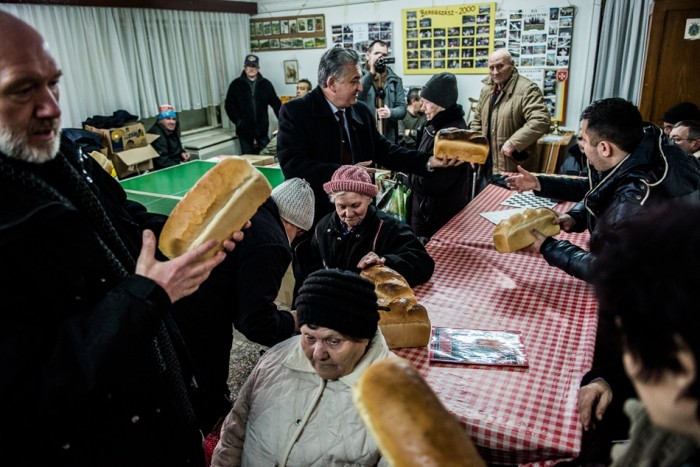The mayor of the Hungarian-dominated town of Beregszász (Berehove) gave a startling glimpse into what a year of war in Ukraine has meant for the western-most region of the country, which is home to over 150,000 ethnic Hungarians, as well as large numbers of Romanians, Roma and Slovaks, in addition to Ukrainians. Mayor Zoltán Babják remarked that the situation in Ruthenia increasingly resembles a humanitarian catastrophe and his town’s efforts to mitigate the impact of conscription, war and a dramatically devalued currency are modest at best.
Mr. Babják told hvg.hu that the average teacher in his regions earns just 30 to 40 euros per month, now that Ukraine’s currency, the hryvnia, has lost two thirds of its value in the past year. In the last week of February alone, the Ukrainian currency lost 13% of its value in just two days of trading. Residents in his town end up barely having enough money to pay for utilities, and then rely on soup kitchens for their meals. At the moment, Beregszász’s soup kitchen serves 300 meals per day to a growing number of locals who find themselves in abject poverty.

Christian Reformed charities from Hungary hand out three bus loads of food in Ruthenia. Photo: Ákos Stiller, hvg.hu
Beregszász’s mayor noted that this wasn’t an ethnic question: ethnic Ukrainians, Rusyns and Roma face the same challenges as the region’s Hungarians. Beregszász, which has a population of 26,000 inhabitants and where 48% of residents are ethnic Hungarians, is literally “emptying out.” Ukrainian authorities have a new way of recruiting men between 18 and 60 years of age to fight against the Russian rebels in Donetsk and Luhansk: they send the conscription notes to the employers of these men, who in turn often fire them from their jobs, thus leaving them with few options, other than going off to fight.
Many ethnic Hungarians, however, have obtained Hungarian passports and are emigrating from Ukraine in growing number, even as the most recent ceasefire appears to take hold. Thus far 100 men from Beregszász have been conscripted and four ethnic Hungarians have died on the battlefields of eastern Ukraine.
Those soldiers who do come back alive can expect some modest assistance from the town’s administration. Beregszász is handing out free plots of land to those who fight, and the soldiers are allowed to do what they wish with them. They can rent them out, sell them or use them to grow their own crops. “This is what the municipality can offer in exchange for the trials and tribulations of war,” said Mr. Babják.
The only people who seem to be benefiting from this situation are some shoppers from eastern Hungary, who are crossing the border and making good use of the fact that the forint is now dramatically stronger against the hryvnia than it was a year ago.
Journalists Eszter Neuberger and Ákos Stiller traveled to Ruthenia and produced a startling photo report of the humanitarian situation on the ground. The battles and chaos in the east, even if a second ceasefire does hold for the time being, has thrown all of Ukraine, including its most western regions, into truly dire straits.



